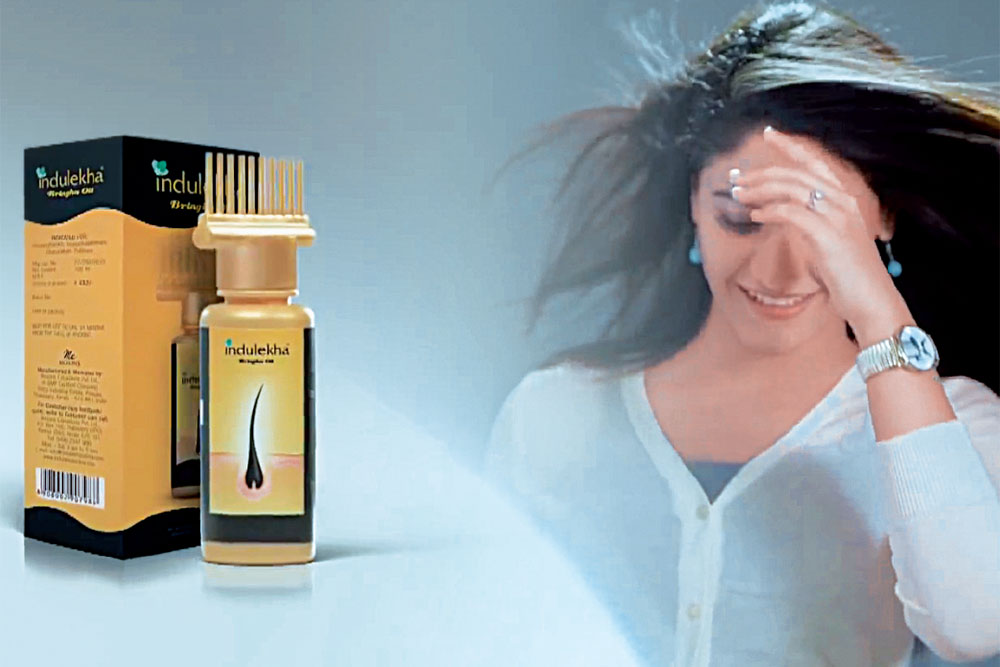Hindustan Unilever Limited (HUL), India’s largest consumer goods company, has made another entry into the growing hair oil industry, through the acquisition of Kerala-based Moson Group’s Indulekha and Vayodha hair care brands. At a deal price of ₹330 crore, this is 3.3x Moson’s ₹100-crore revenue for fiscal 2015 and an EBITDA of ₹30 crore. The deal also comes with a deferred payment structure, where HUL will pay Moson about 10% of the sales from the brand for a five year period. This is expected to take the total payout by the buyer to roughly around ₹450 crore or 4.5x sales.
In 2006, HUL exited the hair oil business by selling its Nihar brand to Marico for ₹240 crore. Nihar was a brand that came HUL’s way after its merger with Tata Oil Mills Company (TOMCO) in 1993. HUL was unable to grow the brand and at the time of the deal with Marico, it had a market share of 9% in the coconut oil segment but over 30% in the smaller and growing perfumed oil business. “For Marico, Nihar gave it a significant presence in eastern India,” says Milind Sarwate, founder and CEO, Increate Value Advisors and former CFO, Marico.
Today, Marico with brands like Parachute and Nihar, has a market share of over 40% in the ₹8,700-crore hair oil business, with coconut oil accounting for 43% and perfumed oil, which includes ayurveda, bringing in the rest. The overall hair care market stands at just over ₹17,000 crore, where shampoos constitute ₹5,200 crore, while hair colouring brands account for about ₹3,100 crore.
Unlike Parachute or Nihar, Indulekha is a premium offering (a 100 ml Bringha offering at the top end costs ₹432) and is positioned in the ayurveda segment. This time, HUL will be up against feisty players such as Dabur, Emami, Parachute and Patanjali. In early 2013, it launched Dove Elixir oil, which has not managed to garner any significant market share. Sarwate thinks the buyout of Indulekha, a brand that has a presence in Kerala, Tamil Nadu and Karnataka is meant to complement HUL’s Ayush, its health and personal care product. “That is the route that HUL is likely to take for its ayurveda foray,” he says. Sanjiv Mehta, Managing Director and CEO, HUL, in a statement, alluded to this by stating the acquisition brings forth a premium brand “with strong credentials around ayurveda that will complement our existing portfolio and strengthen our presence in the hair care category.”
Indulekha was launched in 2009 and its portfolio consists of hair oil, coconut milk shampoo and skin care as well. Hair oil contributes over 70% to its sales. For its part, HUL is already a big player in shampoos with brands like Clinic Plus and Sunsilk. Now, a premium hair oil offering will also be on the table, with hair colouring being the missing piece. A segment like ayurveda also opens up the premium end of the market, which is where the market is slowly expected to gravitate. According to Sarwate, it is imperative to have a clear problem-solution if a player wants to be relevant here. “For instance, a premium brand should be able to address baldness. It is extremely difficult to charge a premium for a brand of daily use without a strong proposition,” he says.
For HUL, getting it right with Ayush, launched in 2002, is critical. Not having encountered any success here at all, the company has decided to take the e-commerce route now away from direct selling and position Ayush as a premium offering. For instance, the basic 100 ml Lever Ayush Poshak oil bottle costs ₹249, while the Bhringamalakadi Tailam for hair fall comes with a ₹599 price tag.
Given that the company has a presence in shampoos and a somewhat strong play in ayurveda as well, the next step in hair care could well be a colouring brand, where names like L’Oreal, Garnier and Godrej dominate. Sarwate is quick to say that this is a very intricate business and calls for a completely different mindset. “A lot of research and time is required here and companies may not have that kind of patience,” he thinks. While HUL can’t afford to ignore this fast growing segment in hair care for too long, it’s probably more important to get its act together with Ayush and Indulekha. Hopefully, that in itself will open up a large window of opportunity.











